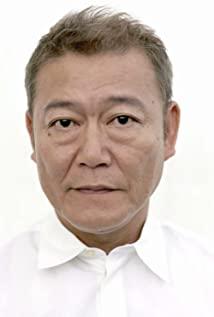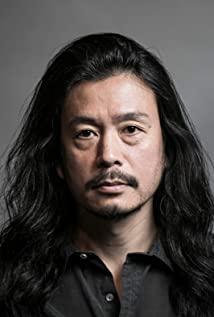This is a movie coming out in 2020. It is based on true events. "Mata" in "Minamata Disease" means "rain", which refers to a strange disease found in Minamata Town, Kumamoto Prefecture, Japan. Check Baidu. This disease first appeared as a public nuisance disease caused by industrial wastewater discharge pollution. Symptoms include slurred speech, staggering, facial dementia, paralysis of hands and feet, sensory disturbance, visual loss, tremor, deformity of hands and feet in mild cases, and neurological disorders in severe cases, or sleepiness, or excitement, body bowing and screaming, until death. Known as one of the eight major public nuisance events in the world.
This film shows a fragment of the Minamata disease incident. The time is 1971. At that time, Minamata disease had been developing for fifteen years, and many people in Kumamoto Prefecture suffered from Minamata disease. At this time, the famous photographer Eugene Smith was commissioned by the American "Life" magazine to go to Japan to take pictures about this strange disease. During his stay in Japan, he encountered many obstacles and many temptations. However, with tenacious perseverance, he always stood on the side of the victims, devoted himself to the resistance movement, and took many shocking photos, which made Minamata disease worse. Caught the world's attention and won a little justice for those patients.
The film narrates this event from two aspects, one is the engraving of the characters, and the other is the record of the event.
Before that, Eugene Smith was already a veteran photographer, and as a war correspondent during World War II, he had taken many influential news photos. When the Japanese woman, Irene, came to him to report on the Minamata disease incident, he wasn't too concerned. Later, after seeing the news value behind the incident, and the need for him, an out-of-date photographer, to make a living, he took over the job. When he interviewed this event in Japan, he was motivated by his long-standing professionalism and his love for photography. He said: "A good photo can take away the soul of a photographer." In a subsequent interview, he saw that Minamata disease had brought hardship to so many families, and people's long-term unremitting struggle made Smith gradually sympathy for them. He was completely angry until the dark room carefully prepared by his friends was caught by an inexplicable fire and the photos he took so hard were burnt! So he threw himself into the front line of the struggle without hesitation, and persuaded those victims not to think about personal privacy but to show their suffering to the world. Therefore, he was beaten by evil forces and was hospitalized with injuries (later his early death was also said to be related to this beating). At the same time, with his fanatical passion, he took the world-famous photo "Tomoko in the Bath". By the way, he also caught his female assistant Erin. The film describes Eugene Smith's mental journey in a less exciting way.
On the other hand, the film faithfully records the sufferings, struggles and different attitudes people suffered after the discovery of Minamata disease. Minamata disease is actually mercury poisoning, which originated from wastewater discharged by Chisso, a large local chemical company. The boss of this company started with the attitude of "this is only one in a million", and then wanted to bribe Eugene Smith who came to investigate. Later, things got more and more troubled. Seeing those innocent patients, the boss suddenly felt sympathy. After muttering with my subordinates for a long time, I realized that "we can't pay that much". This may be his sincerity. Among the protesters, who launched the movement to seek compensation, the leader said: "If we can make a loud enough voice, they have no choice." It is clear that their motivation is still to be loud. In exchange for people's sympathy, the court won the case. Among these protesters, there are also other voices, such as the fake signature of voluntarily giving up compensation. In that kind of situation, people's psychology can understand that when they encounter these hardships, they have no time to think about the affairs of all mankind, and can only think about getting rid of the pain of their own families as much as possible. What the Japanese government considers is the rapid growth of the Japanese economy after the war, so it has been 15 years since the discovery of Minamata disease in 1956, but the government pretends not to see it. In the film, one side of the fight wins the court case, and people rejoice. But this is only a moral victory. In fact, no compensation was received. It can be seen that the problem of "difficulty in execution" is especially serious in Japan, and it can be vaguely felt that the Japanese government is behind the manipulation. It is said that to this day, the lawsuit is still going on endlessly.
The film was filmed last year. In the film, Smith lowered his posture and carefully photographed the sewage discharged from the pipeline. Naturally, people could not help but feel the metaphor in it, which was alluding to the treatment method of the nuclear sewage of the Fukushima nuclear power plant. I saw on TV that the person in charge of the nuclear power plant claimed that the sewage was clean and drinkable. And handed him a cup when Japanese Prime Minister Yoshihide Suga inspected. The younger brother of Yoshihide Suga took the water glass tremblingly, wondering in his heart: "Is it important to show off or my little life?" In the end, he still didn't drink it. Zhiqu's camera quickly panned.
In fact, whether it is nuclear sewage, Minamata disease, or atomic bombs, these are not phenomena created out of thin air by nature, but public hazards created by human beings themselves. Humans are slowly destroying themselves. Today, when people's awareness of environmental protection is gradually increasing, these public hazards are still unscrupulously threatening people's lives. what the government can control. What it needs is a strong synergy. A power common to all mankind, a power of the hand of God. It means whether human beings are progressing or regressing, a choice between survival or destruction. Some insightful people have realized this. It's a pity that I can't see this power yet.
Human beings have developed so far and have created a high degree of civilization. Many scientific and technological achievements have satisfied people's pursuit of beauty and facilitated people's lives. At the same time, many weapons and tools for their own destruction were also produced. While harmony is beautiful, distortions and evils also arise. At the same time of progress, it is also gradually heading towards the abyss. Nonetheless, none of us intends to return to the days of burrowing and blood-drinking, and would rather suffer the inevitable misery than see the destruction approaching day by day. The film says: "Suffering is caused by evil." It is morally correct to condemn it, but who caused the evil? is up to us. Each of us has a share.
Now the more fashionable idea is to return to nature, but for God (let's believe it exists), the living environment of human beings is natural. Man is also a product of nature, and human behavior is also a law of nature. Everything created by human beings is created by nature, including human civilization. In the eyes of God, human beings are only one of the thousands of species in nature. There is no such thing as progress and regression, and there is no such thing as survival and destruction. Human beings are all dead, and it is enough to reincarnate again. Therefore, mankind cannot expect a savior, and the future of mankind depends on itself. This "self" is not just one person, but the common expectation of the whole mankind for a bright future, and the joint efforts made for it. Instead of thinking about mass suicide all day long.
The whole film is quite satisfactory, except for those breathtaking photos, there is really nothing shocking. The level of the actors is also very average, perhaps the script does not give them the freedom to play.
My rating: 6.5.
View more about Minamata reviews











